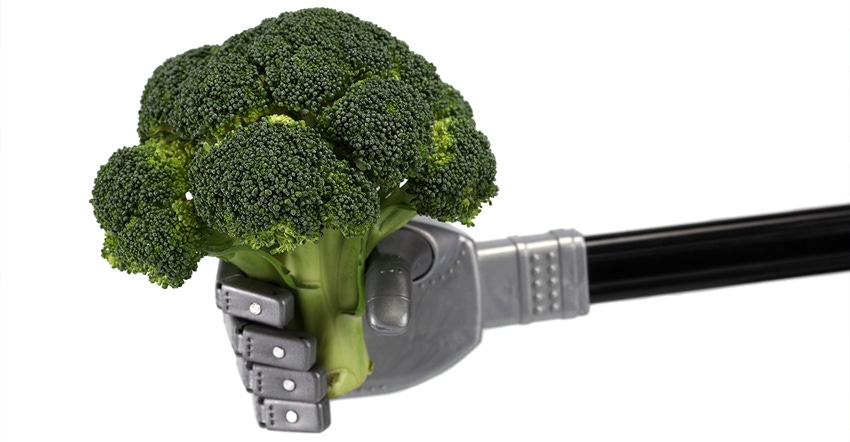Winnow’s AI Technology in Food Waste Prevention, Reduction, and Rescue
As I continue to countdown to WasteExpo I am getting increasingly excited about the innovations I will learn about. This year, I’ve focused on talking to and learning from professionals dealing with AI and new technologies in the waste industry. As AI continues to blow up, it’s finding its way into every part of our industry, including food recovery.

As I continue to countdown to WasteExpo I am getting increasingly excited about the innovations I will learn about. This year, I’ve focused on talking to and learning from professionals dealing with AI and new technologies in the waste industry. As AI continues to blow up, it’s finding its way into every part of our industry, including food recovery.
At this year’s WasteExpo event, you’re bound to hear about how AI is moving into everything we’re working with. As a technology-focused guy, this has me very excited to see how AI can shape the ways we think sustainably. One session I am particularly excited about is Using Technology and Data to Drive Food Waste Prevention, Reduction, and Rescue. To learn more about what I can expect from this session, I reached out to Ignacio Ramirez, Managing Director Americas for Winnow, who will be a speaker on the panel.
Ramirez joined Winnow in 2016, bringing 15 years of real-world experience from the food and beverage industry. This includes managing operations in quick service outlets to overseeing Michelin-star restaurants and luxury hotels. Seeing these parts of the food industry firsthand has allowed Ramirez to learn about food and how wasteful some places can be. Ramirez’s understanding of the industry has fueled his passion for leveraging AI to help large hospitality businesses reduce waste outputs and preserve our planet.
From his own experience, Ramirez says the number one problem in the realm of food waste is the lack of data. To counter this, Winnow steps in with its AI technology to provide chefs with insights into their own waste patterns. After food is tossed, that waste is weighed on a scale and a monitor captures an image, then the AI technology identifies the items and at what stage they’ve been thrown away. This data helps chefs cut down on waste throughout the preparation process.
“Up to 20% of the food purchased by commercial kitchens gets wasted - not because chefs are bad at their jobs, but because they’re working in incredibly pressured environments without the tools to understand what they’re wasting and why,” said Ramirez.
With Winnow, its technology works kind of like a driverless car, according to Ramirez. After food waste has gone through the process of being thrown away and recorded by the AI motion sensors and scales, kitchens are given daily, weekly, and monthly reports. Kitchens using the platform are typically seeing a 50% reduction in food waste. Winnow reports that it is preventing 78,000 tonnes of CO2e emissions annually.
Winnow is also helping kitchens save money. Using the platform and Winnow’s AI technology, kitchens are seeing between 2-8% in savings on food costs.
“To give a more specific example, between 2017 - 2022 we helped IKEA to become the first global business to halve their food waste. They saved $37 million in food costs. The commercial opportunity in reducing food waste is immense - the numbers speak for themselves,” said Ramirez.
One of the key impacts of AI in the waste industry is its ability to tackle dull, dirty, and dangerous jobs. Measuring food waste manually is a time-consuming process and is usually inaccurate. Kitchens don’t have the time to properly document everything and measure their waste output. AI steps in to automate that process and provide data on the kitchen’s process to help teams find points of contention that are producing high amounts of food waste.
“We’re seeing AI shape the world of food waste beyond kitchens too, with supermarkets using tools that analyze customer purchasing patterns to better predict what should be purchased and when. In short, AI has the potential to make a significant difference to global food waste - we’re excited to be a part of that potential,” said Ramirez.
Winnow and its AI solutions are going to continue to shape the food waste area of our industry. Winnow has expanded into 77 countries and well over 2000 kitchens, saving its customers over $50 million. AI has a role to play in food waste prevention, reduction, and rescue and Ramirez will be speaking to this fact at WasteExpo.
The Using Technology and Data to Drive Food Waste Prevention, Reduction, and Rescue panel will be taking place on May 7, 2024, at 1 pm local time at WasteExpo in Las Vegas, NV.
About the Author(s)
You May Also Like




